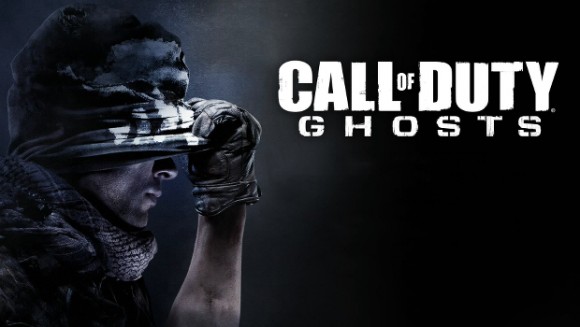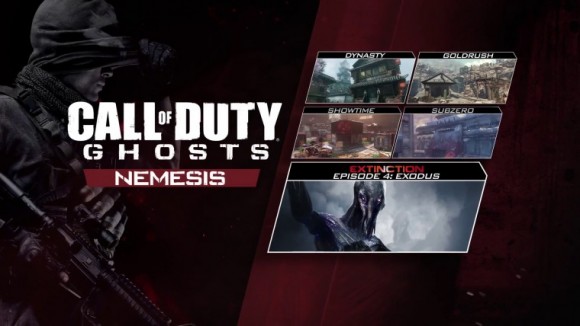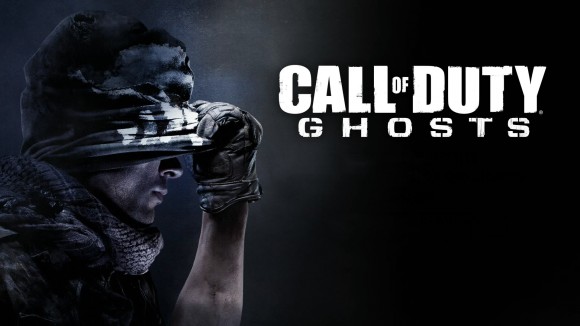
Steeds meer games neigen naar een open-wereld setting tegenwoordig en dat is op zich niet vreemd gezien het succes van dit soort titels. Ook games waar je het niet direct van verwacht hanteren het open-wereld principe. Denk bijvoorbeeld aan Metal Gear Solid V: The Phantom Pain. Toch zijn er ook games die zich hier op zich wel voor lenen, maar dat een ontwikkelaar zich juist expres afzijdig houdt.
Dit is het geval met Call of Duty: Ghosts dat een spectaculair, maar wel een lineair avontuur belooft te worden. US Gamer vroeg studiohoofd Mark Rubin of er geen manier was om een shooter te maken die niet zo eenzijdig zou zijn. Hierop antwoordde Rubin met dat het een kwestie van balans is. Infinity Ward wil met Ghosts een verhaal vertellen en dat je er bij betrokken bent en dat kan blijkbaar het beste op deze manier.
“It’s a balance. We want to tell a great story. We want you to be involved. There are a lot of things that we don’t do, but a lot of other single-player campaigns do.”
“For instance, we generally don’t try to force you to look at a cutscene. If there’s something happening, we don’t just turn the camera and make you look and you’re like, ‘Oh, I’ll just put the controller down. I have to watch this cutscene. Time to eat my popcorn.’ We try to make the player always feel like they’re still part of that world they’re in. They’re not being forced to see those things.”
Met de filosofie zoals gesteld in de citaat geeft Rubin ook aan dat ze nog steeds graag de speler willen begeleiden door het verhaal. Dat heeft voornamelijk te maken met het feit dat als er een open-wereld is, het idee van het verhaal en de gameplay tot op zekere hoogte verloren gaat die Infinity Ward jou als speler juist wilt laten beleven.
“Now, we do still want to guide the player through the story and have a story happening. We don’t want to go into the open-world idea of, ‘I can do whatever I want. I can break my story. I can make my story uninteresting.’ It’s a weird, fine balance. We want to ensure that the player gets the story and the experience that we’re trying to craft for them, but not have that ‘Press Y to watch the cutscene!’ feel, or put the player in a position where they can make the wrong decision and get stuck or get lost or otherwise not feel like they’re part of the story.”
“One of the first things that can happen when you get away from what we try to plan for you is that you realize you’re in a video game. ‘Let’s go see if the toilets flush!’ Flush the toilets. ‘Oh, look, the toilets flush!’ That’s cool. I did it in Duke Nukem every time I saw a toilet. But it pulls you out of the story. You remember that you’re in a game. For us, it’s always about making sure that the player feels like they’re in a movie, that they’re in this cinematic experience. I really think that kind of stuff can pull you away from there.”






als ze het gewoon niet kunnen mogen ze het bij infinity retarded ook wel zeggen
Dit snap ik wel. Ik vind de CoD singleplayer campaigns leuk zoals ze nu zijn. Een achtbaanrit van een paar uurtjes als opwarmertje voor de multiplayer. Lekker zo laten en helemaal niks aan.veranderen zou ik zeggen!
Hadden mensen dat verwacht dan??????
Zelf denk ik dat is miss deze pas in de koopjesbak voor 20 euro ofzo ga bestellen, BF4 lijkt me toch wat mooier de Multiplayer. Ik speel sinds een paar dagen BF3 via PS Plus, men, wat is dat mooi zeg! 😀
Ik vind dat altijd tof aan cod de singleplayer, kunnen weinig games aan toppen. Maar ik ben wel degelijk klaar met de serie. Maar dat neemt niet weg dat ik de singleplayer altijd super vind.
@yannickvanloon: ik ook cod is toch steeds het zelfde
@Dennis: Weinig games kunnen aan CoD’s singleplayer toppen? Ik vind het meestal heel voorspelbaar, maarja, ieder zijn mening.
Ze hebben gewoon geen zin.
Andere wapens current gen? nee geen zin . ze pakken gewoon wapens uit mw2 en mw3
Infinity Ward (ook Activision) wil met zo weinig mogelijk, het maximale geld eruit slepen. Best logisch, maar niet innoverend.
Maar dat is het bij de COD franchise sinds COD4 toch al niet meer.
@DRAGONBLADEX:
+1 hier!
mensen echt waar jong, cod in open wereld= geen cod..
cod is gewoon magnifiek in shooters creeëren.
hun hollywood momenten/block bluster momenten zijn van hoog niveau. of dat je nu niet graag hoort of wel hoort: cod is en blijft de beste shooter.. de graphics zijn rete slecht maar de scenario’s zijn gewoon subliem.. de online is dan weer zeer aangenaam voor competief te spelen.
fast action/skills= cod online
realisme/open wereld met hevige gevechten= battlefield..
black ops daaren tegen is een joke online/ black ops 2 is echt de slechtste cod ever
mw2>mw3>cod4>black ops 1>WAW>black ops 2
@R*forever: idd, Modern Warfare 2 was echt de beste cod van de huidige generatie !
ik ben er weer ingetrapt om de singleplayer te starten van black ops 2 door van iemand te lenen. maar wat een gigantische bagger zooi is dat.
@R*forever: nou hoe kom je erbij om te zeggen dat het de beste shooter is? vind ik echt nergens op slaan. dit is msgn de makkelijkste shooter als je 15 jaar bent. kan je met je leeftijdsgenoten spelen. maar cod was met mw1 en world at war zeker de beste. maar na mw2 was het spelletje al afgelopen hoor.
Ik vind de SP van alle CoDs ontzettend inspirateloos, al had ik wel plezier met MW2. Misschien doet IW het wel prima.
@145.107.71..xxx:
Gast zij eens geen kleuter! Heb ik je battlefield fan-boy gehalte aangetast? Als we over de allerbeste shooter spreken is het ongetwijfeld max payne 3…
Maar cod mw2 is gewoon ‘EEN VAN’ mijn meest favoriete en memorabele shooters
Ik had misschien beter dit vermeld: cod is een van de allerbeste shooters, zucht..
@aarjen116: Dan heb ik een positieve mededeling voor jou, je bent aan het goede adres. Want als CoD ergens in uitblinkt dan is dat wel in niks veranderen. 😉
OT:
Een open-wereld CoD singleplayer? Man ze kunnen nu pas graphics creëren op het niveau van een BF3 op de PS3. 😛 Ze kunnen altijd wel met dit soort smoesjes en excuses komen maar ze krijgen gewoon te weinig ontwikkeltijd imo om echt iets nieuws of verfrissends te doen zoals een open-wereld singleplayer.
@R*forever:
“fast action/skills= cod online
realisme/open wereld met hevige gevechten= battlefield..”
Sorry maar je hebt echt véél meer skills nodig voor een Battlefield game, haha. En zo realistisch is Battlefield nou ook weer niet. Realistischer dan CoD, ok.
En ik kan je beloven dat je met BF4 op de PS4/XONE/PC met 64 man meer actie hebt dan met een CoD game met 12 man. No offense, maar dat lijkt me logisch toch. 😛 Ik hoop niet dat ik je CoD fanboy gehaalte aantast. Haha. 😉
@R*forever:
Dan nog is ‘is’ niet helemaal handig in posts te gebruiken, omdat het klinkt alsof het een feit is. Terwijl voor veel mensen COD aars zuigt en absoluut niet één van de beste shooters is.
Zelf vind ik COD4 de absolute top van alle COD’s, maar daarna ging het bergafwaarts met de serie.
En Max Payne 3 de beste shooter of all time?
Nah ook mening gerelateerd weer, voor mij is Goldeneye 64 dan toch de beste.
Of wat dacht je van XIII? Of liever Turok? Of Killzone? Of BF?
Gevaarlijk om je mening als een feit over te brengen 😉
@PattyS3:
nee hoor gelijk heb je. battlefield is inderdaad niet realistisch want dan kan je beter arma 3 gebruiken^^
maar battlefield is inderdaad op hoge actie gericht. zoals ik vermeldde: grote gevechten.. maar toch weet ik 100% zeker dat cod veel meer intenser is…
en dat je daar echt skill voor moet hebben? battlefield 3 campaign speelde ik bijna blind op hard(bij wijze van spreken).
op online gebied zie ik eerlijk gezegd hier geen mlg optie..
cod is inderdaad kei makkelijk online als 90% van de gamers gaat campen of normaal speelt…
en nee mijn cod fan gehalte is zeker niet omlaag ondanks mijn bf4 al lang op de pre order staat. ik ben een shooterfanaat dus ik speel elke shooter graag..
maar cod is nu eenmaal meer intenser uit mijn ervaring.. ik heb mw2 al 10 keer uitgespeeld, max payne 3 ook, bf3 maar 2 keer(maar de missie going hunting wel 14 keer na mekaar incluslief die elle lange cut scene grrr) and so on…
ik oordeel niet als fan maar als shooter fan… als je echt een fan boy gehalte zoekt ben je aan het verkeerde adres bij mij. zelfs van gta v ben ik geen fan door de hype maar door ervaring met R* games..
@Djierod:
jup ik had alweer eens moeten vermelden dat dit een mening is… moest iemand mij zeggen dat battlefield 4/5/6 of cod 28 de beste shooter is lag ik hem te pletter uit of negeer ik hem totdat ik het zelf ervaar.. ik koop geen games omwille van de hype maar omwille van interesse… en jammergenoeg zitten er daar zoveel hypes tussen die ontstaan zijn.
wat dus ook misschien kan leiden dat ik een zeer goede smaak heb in game genres en franchises :p
@R*forever:
Ik kan me niet meer de hoofdrol spelers voor de geest halen. Dat heeft niks met een fanboy te maken gewoon een vermakelijke zeer matige game met clichés. En een verhaal dat in elk deel zeer voorspelbaar is.
COD een van de beste shooters ooit nee. Meest verkochte ja dat wel, minste innovatie ja en stort op de PS3 is het gewoon echt lelijk. BO2 was voor mij het toppunt van lelijkheid op de PS3. Ik dacht echt dat ik iets verkeerd ingesteld had. De singleplayer om te huilen hoe slecht die liep. En dat tegen het einde van een generatie.
@Flaming_Kaiser:
dit is dus smaak verschil en niks afweten van shooters…
bij mij moet een shooter dit hebben;
zo goed mogelijke realistische wapens
een goede militaire scenario ookal suckt de story..
gameplay moet dik ok zijn
het geluid van de wapens moet je bijna een orgasme geven
graphics ok maar niet over the top …
black ops 2 was inderdaad om van te huilen maar dat zijn smaak verschillen en bij mij is deze opinie blijkbaar dezelfde als die van jou..
@R*forever: Haha van dat fanboy gehaalte was maar een grapje. 😉
Maar sowieso is het allemaal een kwestie van persoonlijke smaak. De een houd van fast-paced actie met perks en killstreaks en de ander van grote team-based gevechten met destructie en voertuigen. Maar 64 man lijkt mij echt intens. Heb echt zin in BF4.
Maar ik praatte over de multiplayer wat skills betreft. De singleplayer van BF3 was niet echt speciaal. Bij Battlefield multiplayer moet je aan veel meer zaken tegelijk denken en met je team spelen om een hoge score te behalen. Bij CoD kan je het eigenlijk alleen wel af.
@R*forever: Ik vond MW2 leuk ik vond BO1 de singleplayer cool. Ik vond MW3 gewoon zeer matig. BO2 alles was slecht inclusief het geluid de kwaliteit van de game was gewoon erg slecht. De singleplayer lelijk en liep slecht de multiplayer deed mij twijfelen of ik een nieuwe bril nodig had. 😉
ik hoor vaak dat het steeds iets van hetzelfde is, wat vind nou eigenlijk iedereen een goede verandering in de cod serie? . ik zou het niet weten.
@PattyS3:
Ik geef je 90% gelijk. Maar in battlefield geen hoge killstreak halen???? Dat is echt wel stukken easier voor een noob omdat die dan gewoon op zijn gemak kan killen. Over een neer stortende helikopter /jet zul je dan wel moeten op passen xd
Ps: bij battlefield draait het niet om de kills maar om de punten voor je team te laten winnen xd.
@Flaming_Kaiser:
Die nieuwe bril laat je maar achterwege. Ik kan je garanderen dat de graphics ugly as fuck waren..
COD GHOSTS IS TROUWENS OOK GEEN HOOGSTANDJE.. De characters zijn zwaar opgekrikt, de belichting is verbeterd maar de omgevingen zijn copy/pastes uit vorige cod’s btw (als je tenminste goed oplet xd)
nou, wat spectaculair
@R*forever: Ik ga alleen deze generatie heel wat kritischer naar games kijken ik heb veel te veel rotzooi gekocht.
@Flaming_Kaiser:
Wel tja dat zeg je nu.. Maar bij mij zal het weer 100% gekocht worden omdat ik als gamer alles wil testen(alles wat me interesse heeft) 😀
Uitgemelkte bagger cod. Komt mijn huis niet in.
@R*forever: Nee inderdaad, in Battlefield kan je natuurlijk ook dikke killstreaks halen, maar ik bedoelde de killstreak rewards / pointstreak rewards zoals Attack Dogs, Chopper Gunner of UAV. Die heb je niet in Battlefield. 😛
@PattyS3:
Ah nee natuurlijk niet. Want je laser pointer is een
uav=spotting voor je team
Choppergunners=de choppers
Danger close airstrikes= de jets
Breaching= c4 (surprise mothafucka)
Tanks=blowing your cover
Counter uav= het kapot maken van spawns en sensors/laser guided gear xd
And last but not least: EMP= neerstortende jets en heli’s omdat noobs het niet kunnen besturen…
😀